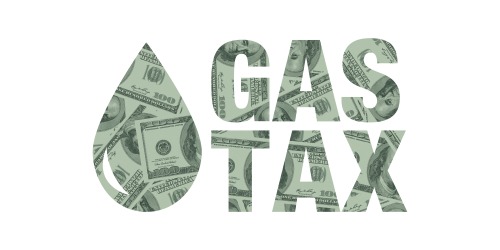
In what the White House has dubbed a federal gas tax holiday, President Joe Biden requested Congress to suspend the federal gas tax through September, and on states to follow suit with some direct relief for the pumps at their level as well.
“The price of gas is up dramatically around the world, and by almost $2 per gallon in America, since Putin began amassing troops on the border of Ukraine,” the White House said in a statement. “President Biden understands that high gas prices pose a significant challenge for working families. That’s why he has taken action in recent months to boost the supply of oil and gas, including an historic release from the Strategic Petroleum Reserve, and encouraging oil companies and refiners to boost capacity and output to get more supply on the market. Today, he is calling on Congress and states to take additional legislative action to provide direct relief to American consumers who have been hit with Putin’s Price Hike.”
The federal government currently charges an 18 cent tax per gallon of gasoline, along with a 24 cent tax per gallon of diesel, to fund critical highways and public transportation through the Highway Trust Fund. Gas prices have surged in recent months, reaching approximately $5 per gallon on average nationwide, and in many places, well exceeding that mark. Biden seeks to relieve some of that pressure, but in his note to Congress, added that any rollback of the tax should not affect money for the Highway Trust Fund.
Reactions to the proposal have not been receptive, however. Even among the president’s own party, Chair of the House Committee on Transportation and Infrastructure Peter DeFazio (D-OR) dismissed such a holiday as short-sighted that relies on the cooperation of oil companies to pass on savings to consumers. Those companies, he noted, made record profits last year in the midst of the COVID-19 pandemic, and raked in $35 billion in the first quarter of 2022.
“Suspending the federal gas tax will not provide meaningful relief at the pump for American families, but it will blow a multi-billion-dollar hole in the highway trust fund putting funding for future infrastructure projects at risk,” DeFazio said. “We should deliver relief directly to American families struggling to make ends meet by ending price gouging and profiteering, not by passing a well-intentioned but ill-conceived policy that undermines the long-term positive impacts of the Bipartisan Infrastructure Law. That’s why I introduced the Stop Gas Price Gouging Tax and Rebate Act, which would tax the oil industry’s obscene 2022 profits and return the revenue back to Americans.”
A similar bill, the Consumer Fuel Price Gouging Prevention Act (H.R. 7688) advanced through the House on purely party lines last month, leaving its path through the Senate in doubt.
According to Biden, though, with the deficit down by $1.6 trillion and other means available to fund the $10 billion needed for the Highway Trust Fund, a gas tax holiday would be viable without harming infrastructure. That said, the White House admitted that such a scheme would not, on its own, relieve surging prices, but that it was meant to provide breathing room.
Industry organizations also appeared skeptical of the proposal, including the American Trucking Association (ATA). Its CEO and president, Chris Spear, released a statement blasting the holiday as a turnaround that would promptly cut the highway system’s primary source of funding after months of touting all the Infrastructure Investment and Jobs act would do for roads and bridges.
“Here are three immediate things this Administration and Congress can do that will actually make a difference,” Spear said. “Make America energy independent… stop kissing the ring of Saudi Arabia. Renew trade agreements with the European Union and Asian Pacific nations in order to export more American oil and natural gas. And, balance the budget… stop wasting hard-earned taxpayer dollars on senseless programs that drive up inflation and runaway deficits.”
Still, the White House emphasized its latest call for action was meant to be coupled with support at state and local levels. Examples like Connecticut and New York, the White House pointed out, have already temporarily suspended their gas taxes, while Colorado and Illinois delayed planned tax and fee increases. Such actions could help, Biden intimated, along with other forms of relief, such as consumer rebates and relief payments.
The amount of oil is not the issue, the federal government stressed. The United States produced more oil under the first year of the Biden administration than under the first two years of the last. Nevertheless, all of this comes at a time when the administration has been pushing hard for a transition to clean energy and away from fossil fuels, and many in the oil industry have argued that more refining capabilities and drilling permits are needed instead.